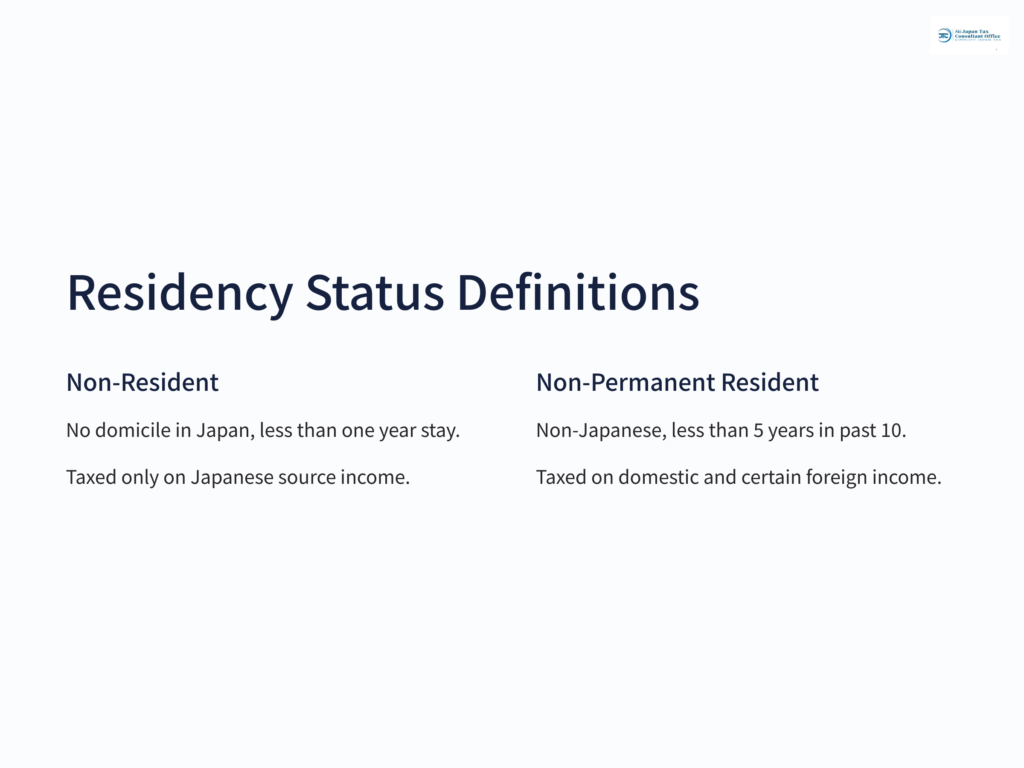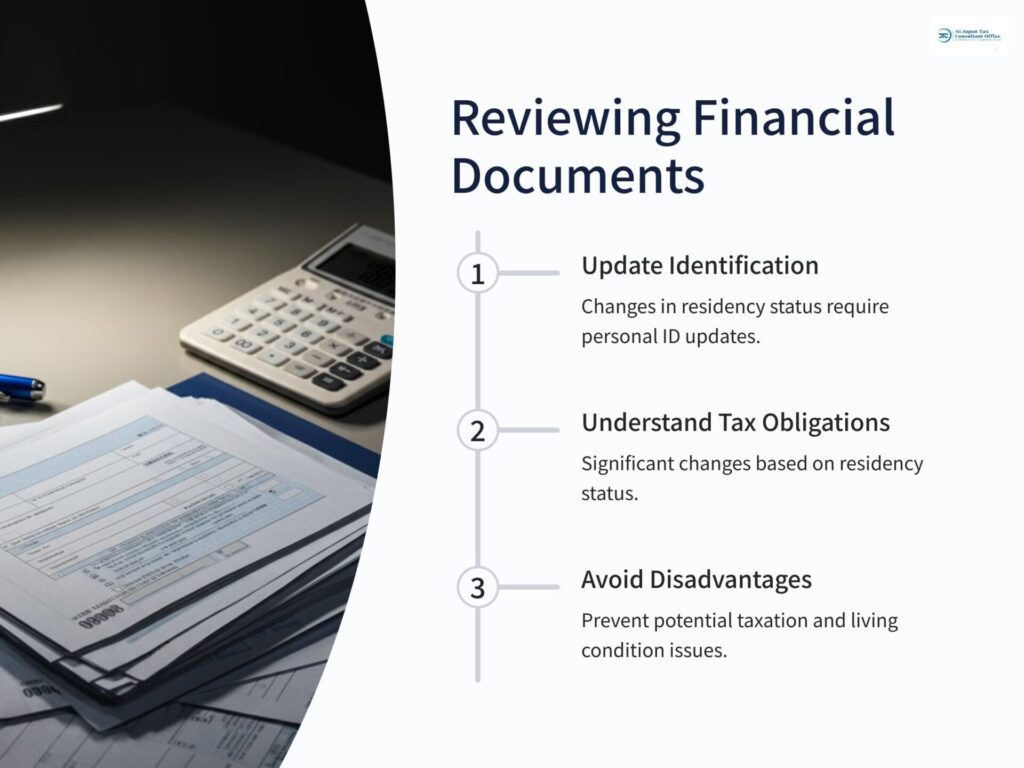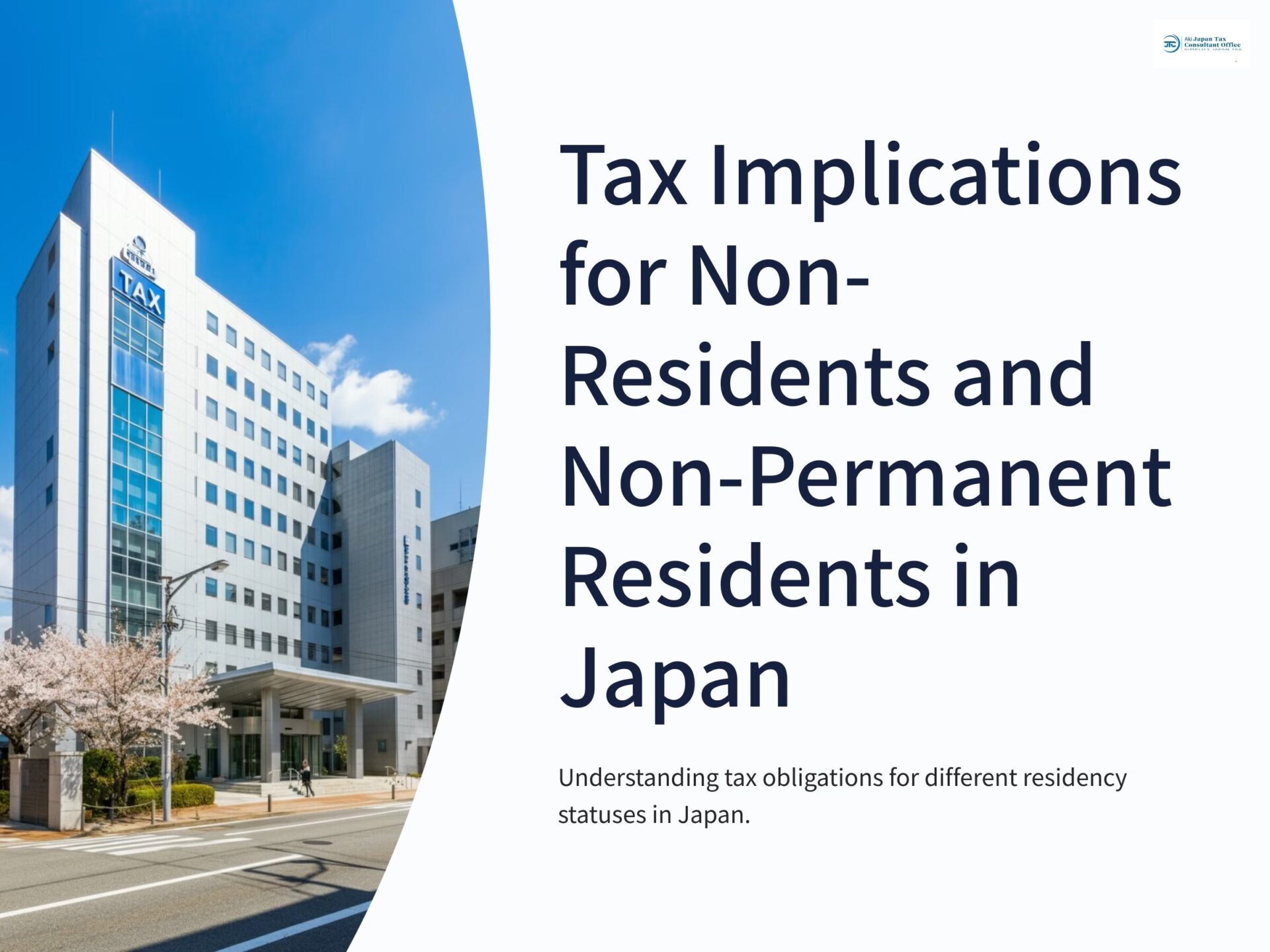Difference between Non-Resident and Non-Permanent Resident

Non-permanent residents and non-residents are similar in character, but the content is different. Since they are treated very differently in terms of tax law, it is necessary to check when you become a non-permanent resident from a non-resident.
Check Definitions
First, let’s review the definitions of each.
Definition
Non-resident: A person who does not have a domicile in Japan and has not resided in Japan for more than one year.
Non-permanent Resident: A non-resident who does not have Japanese nationality and has resided in Japan for less than 5 years within the past 10 years.
Difference in taxable range
Now let’s summarize, including the scope of taxable income.
| Item | non-resident | non-permanent resident |
|---|---|---|
| Definition | Resident outside Japan for at least 1 year | Residence in Japan, no permanent residency |
| taxable subject | Japanese source income only | Domestic source income + Domestic bonus share of foreign income |
| Income from domestic sources in Japan | taxable subject | taxable subject |
| Income from foreign sources in Japan | out of scope | Conditionally taxable* |
Here, foreign source income of non-permanent residents is taxed on a conditional basis.
Foreign source income is money earned outside of Japan. The condition here is that the money must be brought into Japan. Specifically, this applies to remittances and the like.
Why do I need to change my credit card?

Tax differences
When you change your classification to non-permanent resident, you need to change your credit card.
When a credit card that originates from a foreign account is used, the effect is the same as if the funds were transferred from a non-Japanese account to a Japanese account. For this reason, if you continue to use the credit card you used before coming to Japan, it will be considered as if you have sent a lot of money.
What if I can’t get a credit card?
There may be times when it is difficult to get a credit card immediately after arriving in Japan.
In such cases, a debit card is effective. Check the reasons below.
Debit Card Advantages
- No credit check required: Debit cards can usually be issued without a credit check, making them easy to obtain even for foreigners who cannot pass a credit card check. This is due to the low credit risk involved, as payments are made immediately.
- Instantaneous payment: Debit cards are debited from your bank account instantly upon use, preventing overspending. This characteristic makes it easier to manage spending.
- International acceptance: Many debit cards come with international brands such as Visa or Mastercard and can be used abroad. This makes them convenient for travel and business trips.
- No cash: Debit cards eliminate the need to carry large amounts of cash and are a good security measure.
point of attention
- Balance Management: Debit cards cannot be used beyond the account balance, so you must always check your balance .
- Some restrictions on use: Unlike credit cards, debit cards may not be accepted at some stores or services. Also, there may be a fee for use overseas, so please check before using your debit card.
While you may be tempted to use a credit card, even a debit card can be a good first alternative. Make good use of it.
Conclusion

If you become a non-resident to non-permanent resident, you should certainly review your credit cards.
There are significant implications for updating your identification documents and taxation due to a change of address or status. In particular, you should change your credit cards and review your settings to avoid disadvantages in living and taxation in Japan.





